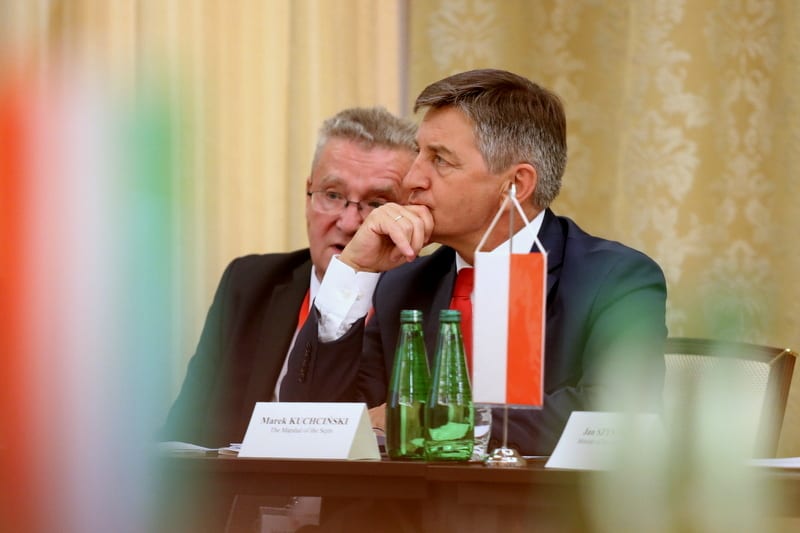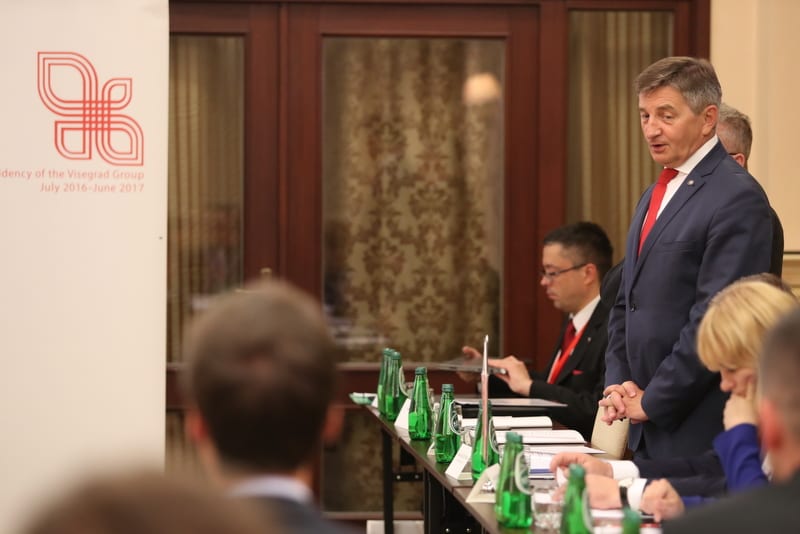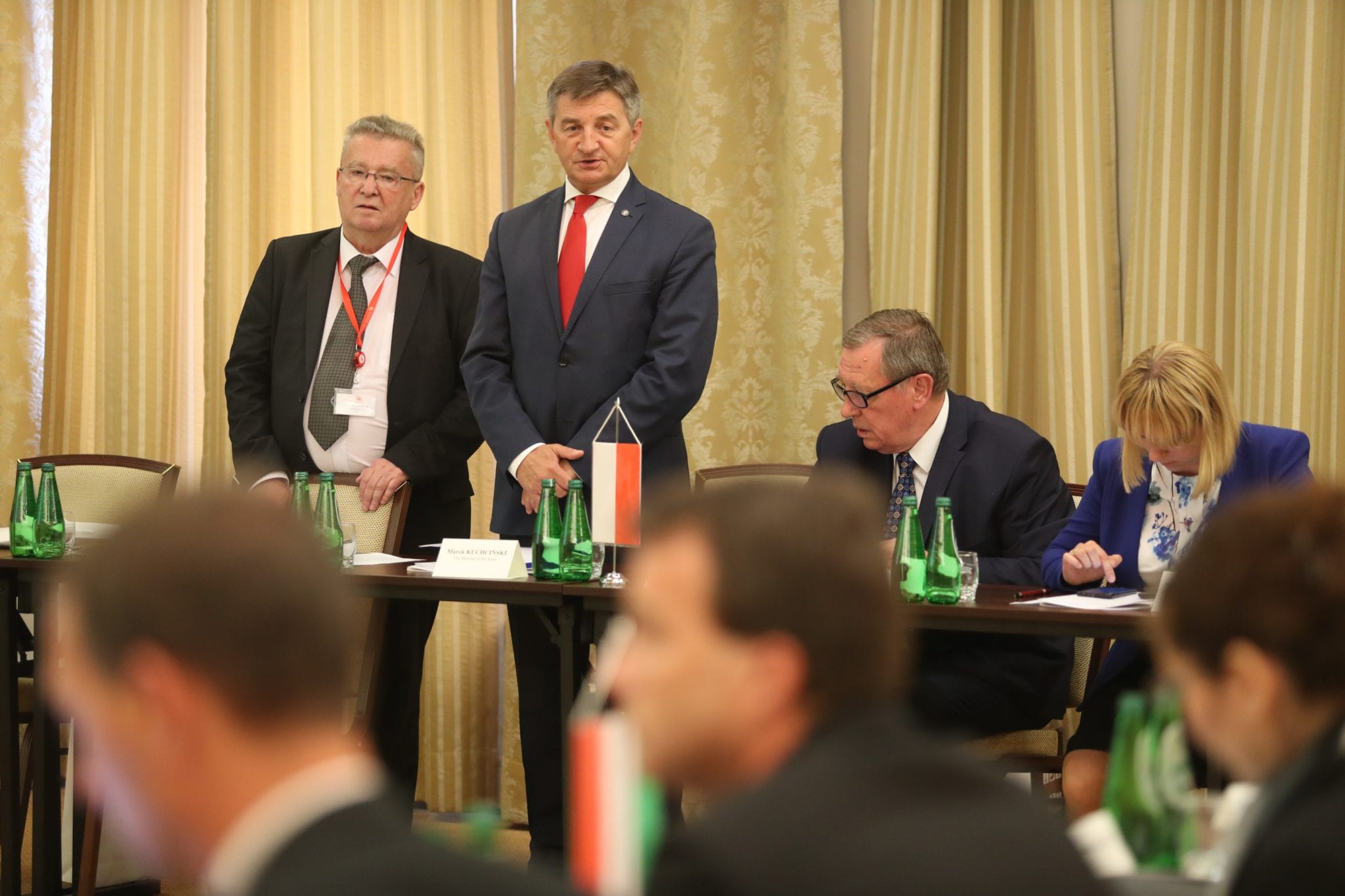During the two-day meeting in Zakopane, the Ministers of Environment of the V4 Group and Bulgaria discussed, among others, Natura 2000 areas, air quality, biodiversity and challenges in the field of climate and energy policy. During the 25th meeting at this level the Speaker of the Sejm Marek Kuchciński took the floor and recalled the path which the Visegrad Group has gone through in order to become a significant partner in Europe:
A dozen or so years ago, when we actively started to work on cooperation within the framework of Central Europe, not only within the framework of the Visegrad Group, we were inspired and guided by ministers of the environment, i.e., among others, by the Carpathian Convention. So the foundation of cooperation between our countries, communities, environments based on sustainable development has expanded to all areas of our activity. In recent years We can clearly see that the importance of Central Europe increases if the cooperation, including the Visegrad Group countries, strengthens. And such challenges or such global tasks as climate policy or Natura 2000 in Europe are the best example of this. We can clearly see that cooperation in the field of environmental protection is not only about nature protection or issues related to air or climate protection. But if we meet at parliamentary level with heads of state, Central European parliaments or other ministers, it is clear that the human being and reference to the human being and the conditions in which he or she lives are fundamental.




 Zakopane, 25th Meeting of Environment Ministers #V4 and Bulgaria.
Zakopane, 25th Meeting of Environment Ministers #V4 and Bulgaria.
A dozen or so years ago, when we actively started to work on cooperation within the framework of Central Europe, not only within the framework of the Visegrad Group, we were inspired and guided by ministers of the environment, i.e., among others, by the Carpathian Convention. So the foundation of cooperation between our countries, communities, environments based on sustainable development has expanded to all areas of our activity. In recent years We can clearly see that the importance of Central Europe increases if the cooperation, including the Visegrad Group countries, strengthens. And such challenges or such global tasks as climate policy or Natura 2000 in Europe are the best example of this. We can clearly see that cooperation in the field of environmental protection is not only about nature protection or issues related to air or climate protection. But if we meet at parliamentary level with heads of state, Central European parliaments or other ministers, it is clear that the human being and reference to the human being and the conditions in which he or she lives are fundamental.


